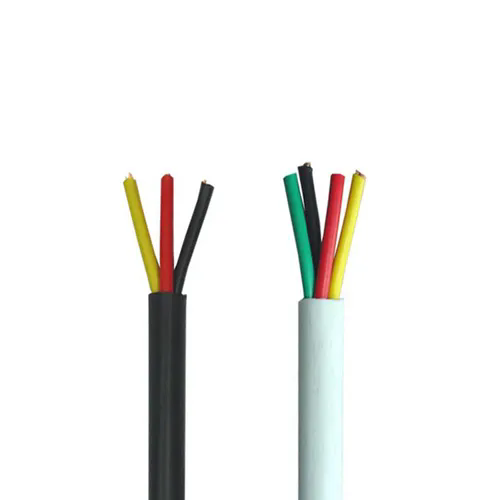Understanding RVV Power Cables: The Backbone of Reliable Electrical Connections
2024-08-07
In the world of electrical wiring and installations, choosing the right power cable is crucial for ensuring safety, performance, and reliability. Among the various types of power cables available, RVV power cables stand out as a versatile and dependable choice for a wide range of applications. In this blog, we’ll explore what RVV power cables are, their key features, and why they might be the ideal solution for your electrical needs.
1. What is an RVV Power Cable?
RVV power cables are a type of flexible, multi-core cable designed for low-voltage applications. The designation "RVV" stands for the cable's construction characteristics:
- R: Rubber insulation, indicating that the cable’s outer layer is made from flexible rubber.
- V: Polyvinyl chloride (PVC) insulation, which provides additional protection and durability.
- V: The second "V" signifies that the cable has a PVC sheath, offering further protection and electrical insulation.
RVV power cables are commonly used in residential, commercial, and industrial settings where flexible, reliable electrical connections are needed.
2. Key Features of RVV Power Cables
- Flexibility: One of the primary advantages of RVV power cables is their flexibility. The combination of rubber and PVC insulation makes the cables highly pliable, allowing them to be easily routed through tight spaces and around obstacles.
- Durability: The PVC sheath provides excellent protection against mechanical damage, abrasion, and environmental factors. This makes RVV cables suitable for use in a variety of conditions, including indoor and outdoor environments.
- Electrical Insulation: RVV power cables are designed to offer reliable electrical insulation, ensuring safe and efficient transmission of electrical power. The combination of rubber and PVC insulation helps prevent electrical faults and short circuits.
- Temperature Resistance: These cables are capable of operating over a range of temperatures, making them suitable for diverse applications. They can typically handle temperatures from -15°C to 70°C, depending on the specific cable design.
- Variety of Sizes: RVV cables come in various sizes and configurations, including different numbers of cores and conductor diameters. This allows for customization based on the specific requirements of the application.
3. Applications of RVV Power Cables
RVV power cables are used in a wide range of applications due to their flexibility and durability. Some common uses include:
- Residential Wiring: RVV cables are often used for internal wiring in homes, including power supply to outlets, lighting fixtures, and appliances.
- Commercial Installations: In commercial settings, RVV cables can be used for powering office equipment, lighting systems, and other electrical devices.
- Industrial Applications: Their flexibility and durability make RVV cables suitable for industrial environments where machinery and equipment require reliable electrical connections.
- Automotive Wiring: RVV cables are also used in automotive applications, providing power to various electrical components within vehicles.
4. Installation and Maintenance Tips
To ensure optimal performance and longevity of RVV power cables, consider the following installation and maintenance tips:
- Proper Routing: Route the cables carefully to avoid sharp bends or excessive stress. Use cable trays or conduits where necessary to protect the cables from mechanical damage.
- Correct Sizing: Select the appropriate cable size and configuration based on the electrical load and distance requirements. Undersized cables can lead to overheating and reduced performance.
- Secure Connections: Ensure that all connections are properly secured and insulated. Loose or poorly connected cables can cause electrical faults or hazards.
- Regular Inspection: Periodically inspect the cables for signs of wear, damage, or degradation. Replace any damaged cables promptly to maintain safety and performance.
5. Conclusion
RVV power cables are an excellent choice for a variety of electrical applications, offering a blend of flexibility, durability, and reliable performance. Whether you’re working on residential, commercial, or industrial projects, RVV cables provide a dependable solution for your wiring needs. By understanding their key features and applications, you can make informed decisions about incorporating RVV power cables into your electrical systems. Ensure proper installation and maintenance to maximize the benefits of these versatile cables and keep your electrical connections safe and efficient.



